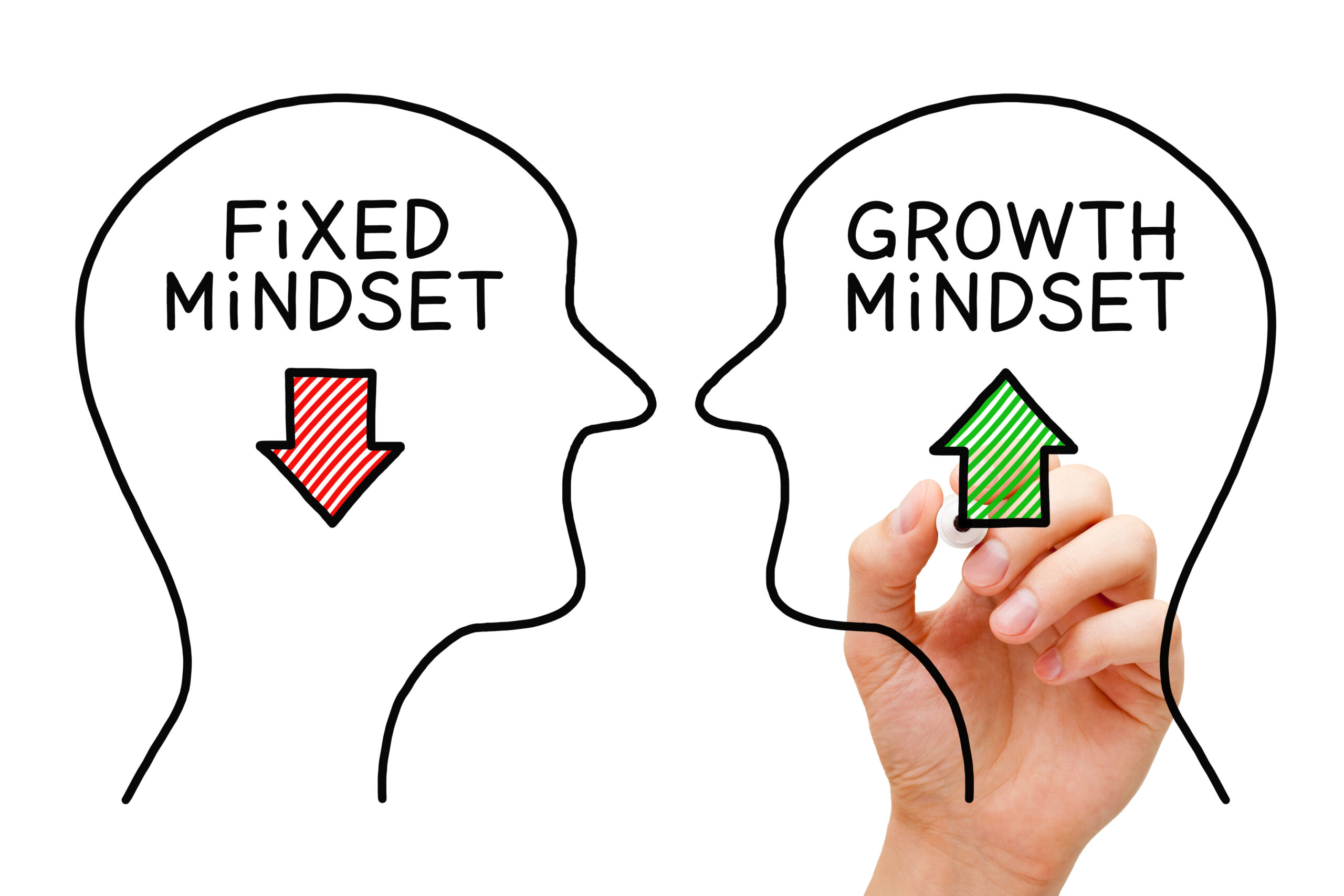High-achieving professionals often feel stuck in the “work more, earn more” trap – grinding long hours and burning out without seeing proportional results.
But the most successful, low-stress entrepreneurs break this cycle with a more innovative approach.
Below is a research-backed cheat sheet outlining seven key habits that distinguish high-earning, low-stress entrepreneurs from the overworked crowd. Adopt these habits, implement the daily routine formula, and embrace the #1 mindset shift to boost your income without increasing your workload.
Habit 1. Work Smarter, Not Harder (The #1 Mindset Shift)
High-earning entrepreneurs focus on results, not clocked hours. Embracing the mindset that more work hours ≠ more success is transformative. In fact, pushing past ~50 hours a week can hurt productivity – a Stanford study found output per hour plummets after 50 hours, and beyond 55 hours, there’s no point working more. Instead of equating busyness with achievement, top entrepreneurs redirect their energy to high-impact activities (see Habit #2) and leverage efficiency. Tim Ferriss famously said, “Focus on being productive instead of busy.” This mindset shift frees you from the guilt of “not doing enough” and encourages you to achieve more in less time. Remember: success comes from smart strategy and leverage, not brute force burnout.
Habit 2. Ruthlessly Prioritise High-Impact Tasks
The 80/20 rule (Pareto Principle) is every efficient entrepreneur’s secret weapon – roughly 20% of your efforts drive 80% of your results. High earners identify these vital few tasks that generate revenue or significant progress and prioritise them daily. Start by listing all your tasks and ask:
Which activities directly increase income or growth?
Tackle those first and delegate or delay the rest. By focusing on high-ROI projects (e.g. closing a big client or developing a new product feature) instead of getting lost in minor to-dos, you’ll accomplish more that truly matters. Research on Return on Time Invested (ROTI) shows that prioritising high-impact work can exponentially increase productivity. For example, this might mean spending the first 2 hours of your day on a key revenue-generating task (like strategic planning or sales outreach) before checking emails. Laser focus on what moves the needle, and watch your results (and income) compound.
Habit 3. Delegate, Automate, and Elevate
You can’t scale up your income (or impact) if you’re doing everything yourself. Successful entrepreneurs delegate strategically – they outsource routine, low-value tasks and automate processes to free up their time for leadership and innovation. This isn’t just about efficiency; it’s about stress relief too. Studies confirm that delegating reduces leaders’ workload and stress levels by sharing responsibilities. So, give yourself permission to hand off tasks that others can do 80% as well as you. Hire an assistant for admin work, use software to automate reports, or bring on a specialist for tasks outside your expertise. Every hour you liberate can be reinvested in high-level activities (strategy, skill-building, client relationships) that grow your business. As a bonus, empowering your team through delegation also boosts their engagement and efficiency. Remember, “doing it all” is a recipe for burnout; building systems and support is how high earners achieve more with less effort.
Habit 4. Design a Balanced Daily Routine (Structure = Freedom)
High-earning, low-stress entrepreneurs follow a daily routine that optimises their energy and time. Counterintuitive as it sounds, the structure creates freedom – a well-planned day prevents decision fatigue, reduces procrastination, and ensures you make progress on what matters without feeling overwhelmed. Here’s a proven daily routine formula to reduce stress while increasing productivity:
- Morning (Prime Your Mind & Body): Start with activities that boost your mood and focus. Many successful founders begin with exercise or meditation to energise their bodies and centre their minds. Even a 10-minute mindfulness practice can calm anxiety and improve concentration for hours.
- Follow with a healthy breakfast and set your top 3 priorities for the day (tied to your high-impact tasks from Habit #2). Tackle the most important task first – “eat the frog” – when your mental energy is highest. This avoids the cortisol spike from procrastination (yes, delaying challenging tasks raises stress hormones).
- Midday (Focus Blocks & Breaks): Use time blocks for deep work on key projects (e.g. a 90-minute uninterrupted focus block, phone on Do Not Disturb). Then take a real break – lunch away from your screen, a short walk, or a power nap. Research shows a brief detachment from work lowers stress and recharges your brain for the afternoon.
- Protect at least one block in the day for strategic thinking or creative work free from meetings.
- Evening (Wind Down & Review): End work at a reasonable hour to maintain healthy boundaries. High performers know when to unplug and recharge – remember, even machines need downtime (and you are not a machine).
- Use the evening to relax with family or hobbies, which prevents burnout and subconscious work on problems. Before bed, jot down gratitudes and wins for the day (see Habit #7) and outline tomorrow’s priority tasks. This simple reflection primes you for positivity and clarity, so you don’t lie awake with work anxiety.
By following a routine like this, you create a sustainable rhythm. You’ll get more done by working with your natural energy cycles and guarding against stress and exhaustion. Consistency beats chaos. As one entrepreneur put it: “Either you run the day, or the day runs you.” With a balanced routine, you’re back in control.
Habit 5. Prioritise Health & Energy (Exercise, Sleep, Self-Care)
Your body is your business’s biggest asset. High-earning entrepreneurs treat exercise, nutrition, and sleep not as nice-to-haves, but as non-negotiable parts of their work regimen.
Why?
Because physical well-being directly fuels productivity and stress resilience. Regular physical activity, for example, has been shown to lower stress levels, improve mood, and even boost brain health and memory.
In other words, a morning run or yoga session might contribute more to your bottom line than an extra hour at your desk. Make it a habit to move your body daily – schedule a workout, a brisk lunchtime walk, or even a 5-minute stretch break each hour. Additionally, guard your sleep like a meeting with your top client; research from the World Health Organization links 55+ hour workweeks with significantly higher risk of heart issues, underscoring the importance of rest. When you take care of your body, you’ll notice you think clearer, have more energy, and can handle business challenges with greater ease. Remember, high performance is a marathon, not a sprint – you can’t pour from an empty cup, so fill yours first.

Regular exercise isn’t a luxury – it’s part of the job description for stress-proof entrepreneurship. Even a quick at-home workout or lunchtime walk can release tension and keep you in a peak performing state.
Habit 6. Embrace a Growth Mindset and Continuous Learning
Low-stress top performers see every challenge as a learning opportunity, not a verdict on their ability. This is the essence of a growth mindset, a concept pioneered by psychologist Carol Dweck. It’s the belief that skills and intelligence can be developed with effort and learning. Entrepreneurs with this mindset react to setbacks with curiosity instead of panic. Rather than beating themselves up over failures, they ask:
“What can I learn from this? How can I improve?”
Adopting this habit can dramatically reduce stress – mistakes and obstacles stop feeling like catastrophes and become part of the process. Research from Harvard Business School notes that a growth mindset is an “invaluable asset in the startup world,” allowing founders to find opportunities in challenges.
 In practice, this means actively seeking new knowledge (through books, courses, and mentors) and being open to feedback. Successful entrepreneurs often schedule time for learning – whether it’s reading industry news each morning or debriefing projects to refine their approach. This constant improvement loop not only boosts their competence (and income potential) over time but also builds confidence that any problem can be resolved. Stress shrinks when you trust your ability to adapt and grow. Remember: every expert was once a beginner – stay curious, and you’ll stay ahead.
In practice, this means actively seeking new knowledge (through books, courses, and mentors) and being open to feedback. Successful entrepreneurs often schedule time for learning – whether it’s reading industry news each morning or debriefing projects to refine their approach. This constant improvement loop not only boosts their competence (and income potential) over time but also builds confidence that any problem can be resolved. Stress shrinks when you trust your ability to adapt and grow. Remember: every expert was once a beginner – stay curious, and you’ll stay ahead.
Habit 7. Cultivate Positive Mental Habits (Mindfulness & Gratitude)
Lastly, high-earning entrepreneurs manage their mindset as intentionally as their business plan. Two daily habits in particular set them apart: mindfulness and gratitude.
- Mindfulness: Incorporating mindfulness practices (like meditation or breath exercises) into your routine trains you to stay calm and focused under pressure. Rather than reactively putting out fires 24/7, you respond with clarity. Research has found that mindfulness meditation can boost innovation and improve decision-making for entrepreneurs.
- Even a brief daily meditation (5–10 minutes of quiet, focused breathing) acts like a reset button for your brain.
- Over time, you’ll notice a more stable, centred mindset – deadlines or setbacks won’t throw you off as easily. Think of mindfulness as mental fitness: it builds the muscle of resilience.
- Gratitude: It might sound simple, but practising gratitude daily is a proven stress-buster and success enhancer. Psychology research consistently links gratitude with greater happiness and lower stress.
- When you take a moment to appreciate even small wins or things going well, you shift your perspective from scarcity to abundance. This positive outlook increases your motivation and helps you handle adversity more effectively.
- Try this: each evening, write down 3 things you’re grateful for or proud of that day – big or small. Over time, this habit literally trains your brain to notice opportunities and solutions instead of dwelling on problems. It’s a fast track to a more positive, resourceful state of mind.
By nurturing these mental habits, you create an inner environment of confidence and low stress. You’ll carry yourself with a calm, positive demeanour that attracts others (clients, partners, team members) and makes the journey of entrepreneurship far more enjoyable. Remember, success isn’t just about what you do but how you feel while doing it. Mindfulness and gratitude ensure you feel as good as you perform.
Mindfulness and gratitude are “secret weapons” of the most balanced entrepreneurs. Research shows mindful practices enhance innovation and decision-making, while gratitude is strongly linked to greater happiness and stress reduction. A calm, positive mind is a productivity multiplier.
Conclusion & Next Steps: Take Control of Your Success
Adopting these seven habits will lead you to higher income and lower stress. Remember, it’s not about making overnight changes – it’s about consistent, daily actions. Start with one or two habits and build momentum. As you prioritise what truly matters, care for your well-being, and shift your mindset, you’ll notice procrastination fades, burnout decreases, and results skyrocket. Success with balance is absolutely possible when you apply the right strategies.
Ready to fast-track your transformation?
Don’t go it alone.
As a high-achieving professional, the best investment you can make is in expert guidance to tailor these principles to your life and goals. Schedule a FREE coaching call today to map out your action plan. In this no-obligation session, you’ll get personalised insights on implementing these habits, beating burnout, and accelerating your success without trial and error. Take the first step toward a high-earning, low-stress future – click here to book your free coaching call now!
References
- Baumeister, R. F., & Tierney, J. (2011) Willpower: Rediscovering the greatest human strength. New York: Penguin Press.
- Dweck, C. S. (2006) Mindset: The new psychology of success. New York: Random House.
- Gino, F., & Staats, B. R. (2015) ‘The morning routine of successful entrepreneurs’, Harvard Business Review, 15 May. Available at: https://hbr.org (Accessed: 18 March 2025).
- Grant, A. (2013) Give and take: Why helping others drives our success. New York: Viking.
- Harvard Business School (2020) ‘Growth mindset in entrepreneurship’, Harvard Business School Working Knowledge. Available at: https://hbswk.hbs.edu (Accessed: 18 March 2025).
- Kegan, R., & Lahey, L. L. (2009) Immunity to change: How to overcome it and unlock potential in yourself and your organization. Boston: Harvard Business Press.
- Newport, C. (2016) Deep work: Rules for focused success in a distracted world. New York: Grand Central Publishing.
- Pencavel, J. (2014) ‘The productivity of working hours’, The Economic Journal, 125(589), pp. 2052-2076. doi:10.1111/ecoj.12166.
- Ryan, R. M., & Deci, E. L. (2000) ‘Self-determination theory and the facilitation of intrinsic motivation, social development, and well-being’, American Psychologist, 55(1), pp. 68-78. doi:10.1037/0003-066X.55.1.68.
- Schumpeter, J. A. (1942) Capitalism, socialism and democracy. New York: Harper & Brothers.
- Schwartz, T. (2010) ‘The productivity paradox: Work smarter, not longer’, Harvard Business Review, 15 October. Available at: https://hbr.org (Accessed: 18 March 2025).
- Seligman, M. E. P. (2011) Flourish: A visionary new understanding of happiness and well-being. New York: Free Press.
- Sonnentag, S., & Fritz, C. (2007) ‘The recovery experience questionnaire: Development and validation of a measure for assessing recuperation and unwinding from work’, Journal of Occupational Health Psychology, 12(3), pp. 204-221. doi:10.1037/1076-8998.12.3.204.
- Stanford University (2014) ‘The effects of long working hours on productivity’, Stanford Research Brief. Available at: https://stanford.edu/research (Accessed: 18 March 2025).
- World Health Organization (2021) ‘Long working hours increasing deaths from heart disease and stroke’, WHO Newsroom, 17 May. Available at: https://www.who.int/news-room (Accessed: 18 March 2025).





